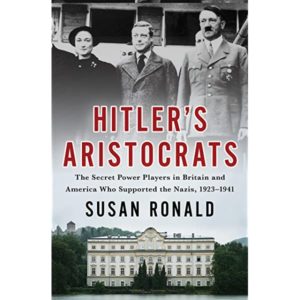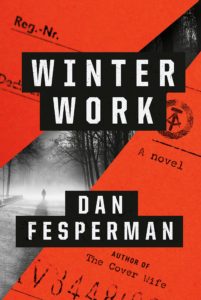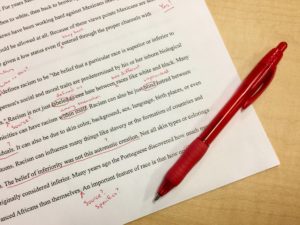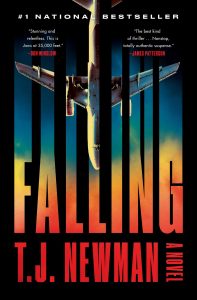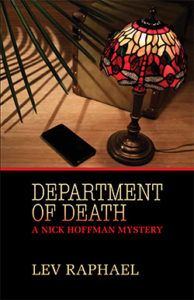Hitler’s Aristocrats by Susan Ronald could just as easily have been called Hitler’s Stooges. It’s a survey of wealthy and upper-crust Britons and Americans who for various reasons supported and even idolized Hitler in the 1930. Some of them were grotesque and paranoid anti-Semites, others admired the man or were even hypnotized by him. Still others believed in his mission to create a strong, stable Germany–no matter the human cost.
Whatever their reasons, they were wildly deluded and dangerous because they either ignored the truth about Hitler’s Germany or just didn’t understand it. For readers of WWII history in books like The Garden of Beasts by Erik Larson or a novel like Munich by Robert Harris, the material here in general might not seem new, though its scope might as you explore the range of this informal international propaganda machine.
Ronald writes in a surprisingly breezy style given the subject matter and calls these people “influencers.” You can decide whether you think that term makes them more understandable or seems too mild for the profound damage they tried to do to democracy and the aid they gave to the dictator and his criminal regime.
Perhaps most fascinating of all here is the story of British press baron Lord Rothermere and his quixotic-verging-in-nutty campaign to restore the German and Austrian monarchies, believing that Hitler was on his side. That story deserves a book of its own.
Ronald takes more time than necessary explaining Hitler’s rise to power before we actually see the “influencers” plying their filthy trade. She also isn’t quite as evocative a writer as Lynne Olson, who’s written extensively about WWII and the lead-up to that war in books like Citizens of London, but she does keep her dark tale moving briskly in short chapters filled with often quirky details. Like noting that one German émigré had “irregular teeth, with one tooth on the upper left side of his mouth protruding to force his upper lip over the gum whenever he laughed or spoke emphatically. At some point during the Nazi rule, he had the offending tooth capped in gold.”
Make of that what you will, and welcome to a despicable rogue’s gallery of wealthy businessmen, quisling politicians, real and fake nobility and lots of very odd ducks. Of course the notorious Duke and Duchess of Windsor make their appearance here though readers might prefer a whole book about the couple, Andrew Lownie’s recent Traitor King.
To her credit, Ronald can turn a phrase more often than not, as when she notes that the mass producer of cars, Henry Ford, also mass produced antisemitism via his newspaper and endless crazy pamphlets.
Whether malign, naive, power-hungry or ambitious in other ways, these reckless and ruthless people functioned as a kind of PR Third Column to aid Hitler’s regime and his war effort. Hitler’s Aristocrats is a solid introduction to a sordid time. And for readers who want a deep dive in Hitler and his Germany, I highly recommend the amazingly-detailed biography by Volker Ullrich.
Lev Raphael has reviewed books for The Washington Post, The Detroit Free Press, Jerusalem Report and a handful of public radio stations. He is an #SMPInfluencer.

